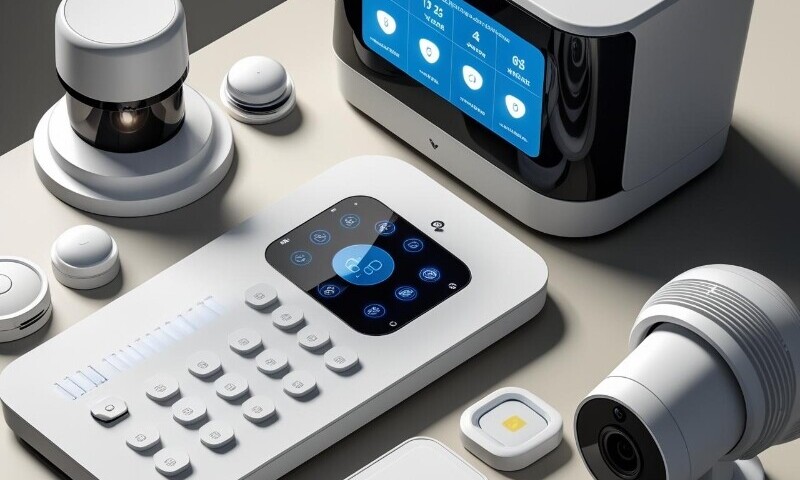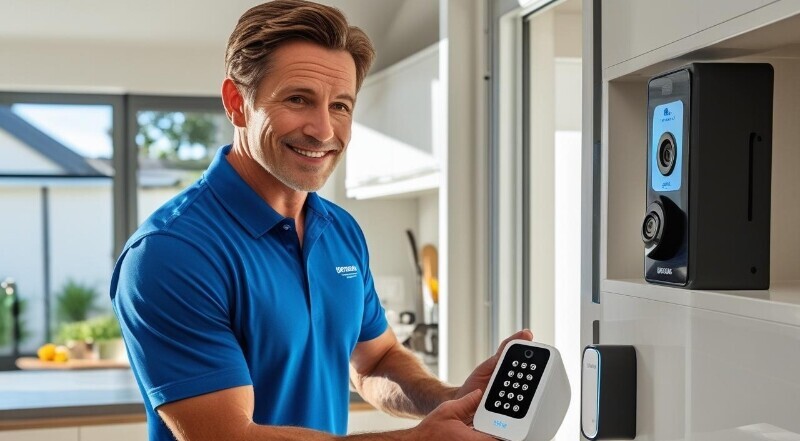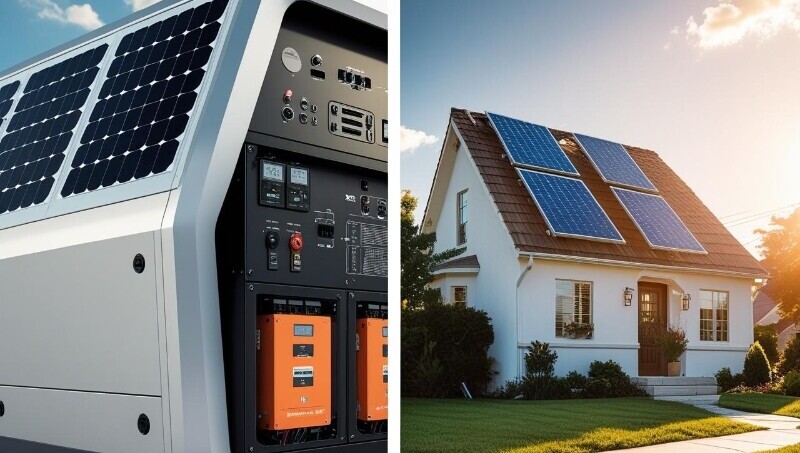Table of Contents

Home security systems are all about keeping your fortress safe from unwanted intrusions. These typically come with a bunch of gear like alarms, cameras, and even apps for your phone. All these bits work together to make sure your home’s as secure as a vault.
You’ll find two main types of systems: the ones you can set up on your own and the ones where the pros come in and do it for you. DIY systems are great if you’re the hands-on type or looking to save some cash. They give you a chance to pick and choose exactly what you need for your setup. On the other hand, professional installations might cost a tad more, but they usually come with all the bells and whistles, not to mention, you get some peace of mind knowing it’s handled by someone who’s been around the block.

Standard features often include cameras for keeping an eye on things, alarms to scare off the bad guys, and monitoring services that alert you and possibly local authorities when something’s off. Cameras might even have night vision or motion detection, which is pretty cool for catching any sneaky business after dark.
Some systems come with added perks like smart home integration, where your security system talks to your lights or thermostat. This can give your home a lived-in look, even when you’re off grid, which can be a great deterrent for potential intruders.
When diving into the world of home security systems, it’s like picking out a new phone or car. You want something reliable, that fits your lifestyle, and gives you the best bang for your buck. So, it’s essential to get familiar with what these systems do and what components they come with. That way, you’re set to make a call that suits your needs and keeps those troublemakers at bay.
Reliability of Home Security Systems During Disasters

When disaster strikes, the reliability of your home security system is put to the test. Natural events like hurricanes, earthquakes, and heavy storms can shake up even the best-laid defenses. Systems might lose power or connection, leaving your home vulnerable.
Power outages are a big deal when it comes to traditional security systems. Many depend on a steady flow of electricity, so when the lights go out, so does the system. Some systems do have backup batteries, but you’ve have to check how long those will actually last. Not all backup solutions are created equal, and finding one that keeps going during prolonged outages is key.
Communication networks might also take a hit. Many systems rely on Wi-Fi or cellular networks to send alerts or notifications. A busted tower or downed lines can mean your alerts don’t get through, which is the last thing you want in a crisis. Looking for alternatives or systems that can operate offline or have multiple communication redundancies can be a lifesaver.
There’s also the factor of whether a security service is there to help during disasters. Some companies might face delays or service interruptions when their own infrastructure is impacted. It might be a good idea to chat with providers about their disaster protocols and find out if they’ve got extra measures in place to handle such scenarios.
Ultimately, knowing your system’s limitations and having a backup plan is a solid way to ensure your home stays protected. It’s not just about assuming things will work, but knowing they will when facing Mother Nature’s wrath.
Technological Advancements Enhancing System Resiliency

When it comes to weathering a storm, new tech is stepping up to help home security systems stay tougher than ever. Solar power and battery backups are coming in strong, offering a way to keep your system alive and kicking when traditional power lines fail. A well-placed solar panel can keep those batteries charged, so even on day three of a blackout, your home remains a fortress.
Wireless technology also plays a huge role in keeping systems robust. While older setups depended on hardwires, today’s systems are increasingly wireless, cutting down on points of failure from snapped lines or flooded junctions. Plus, this wireless tech continues to improve, adapting better each year to the demands of modern, dependable security.
The rise of smart technology and the Internet of Things (IoT) means that your home security system can be smarter and a bit predictive, too. These systems can integrate with other smart devices in your home to create a more cohesive safety net. Some systems might even get smarter about predicting issues, like alerting you to maintenance needs so you can tackle small problems before they become big disruptions.
Tech advancements are helping provide defense layers that were science fiction a few decades ago. It’s about using the clever stuff that’s out there to make your home a place where you don’t have to worry as much, even when nature goes a bit wild. If you’re considering an upgrade or a new system, focusing on these innovations will put you in a solid spot.
Comparative Analysis: System Brands and Their Disaster Response Features
Different brands have their unique strengths, especially when disaster strikes. Some systems are equipped with features specifically designed for emergencies, such as high-capacity batteries, enhanced communication protocols, and weather-resistant equipment. Knowing which brands prioritize disaster readiness can make a significant difference.
Looking at consumer reviews and testimonials can offer real-world insights into how systems perform under pressure. People often share experiences of how their systems held up, or didn’t, during natural disasters, providing valuable firsthand reflections.
Case studies can be particularly eye-opening. They give detailed accounts of systems that have either excelled or floundered when faced with real disaster situations. This can help in pinpointing which systems might give you the upper hand in safeguarding your property when things get rough.
Analyzing the warranty and customer service support also matters. Brands offering robust post-sale support often provide quicker fixes and better assistance during times when even the best systems might face hiccups.
It’s about doing the homework—checking out what others have gone through, understanding which brands go that extra mile in tough conditions, and choosing a system that fits your specific environment and situation.
Making the Right Choice: Expert Tips and Consumer Guidance
Choosing the right home security system can feel like navigating a maze, especially if you’re in an area prone to natural disasters. One key step is identifying what features are must-haves for your specific situation. If you’re in a hurricane zone, for example, ensure your setup includes water-resistant equipment and strong communication capabilities that can withstand severe storms.
Before buying, ask providers some essential questions. Inquire about their disaster-related features, backup power solutions, and how they handle network issues when the usual lines of communication are down. It’s also wise to learn how they prioritize service calls during widespread outages.
Crafting a multi-layered security strategy is a good approach. This could mean integrating your new system with other smart home tech to boost resilience. Layer in a few additional measures like security lights or a reinforced safe room to round out your protection plan.
Lastly, take time to review feedback from other consumers. Those living in similar conditions are often the best resources for practical advice. Their experiences can help guide which systems are genuinely reliable when tested by real-world events.
Remember, the goal is to have a comprehensive solution that gives you peace of mind not just during sunny days, but when you’re hit with the unexpected.
